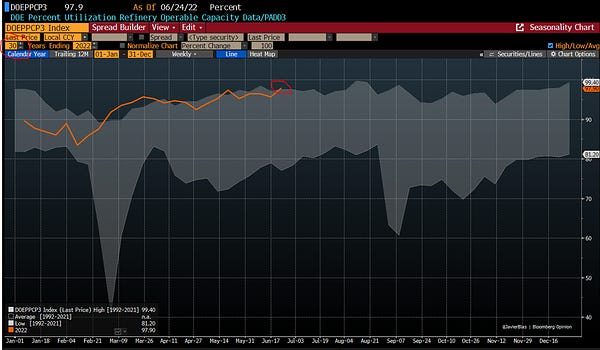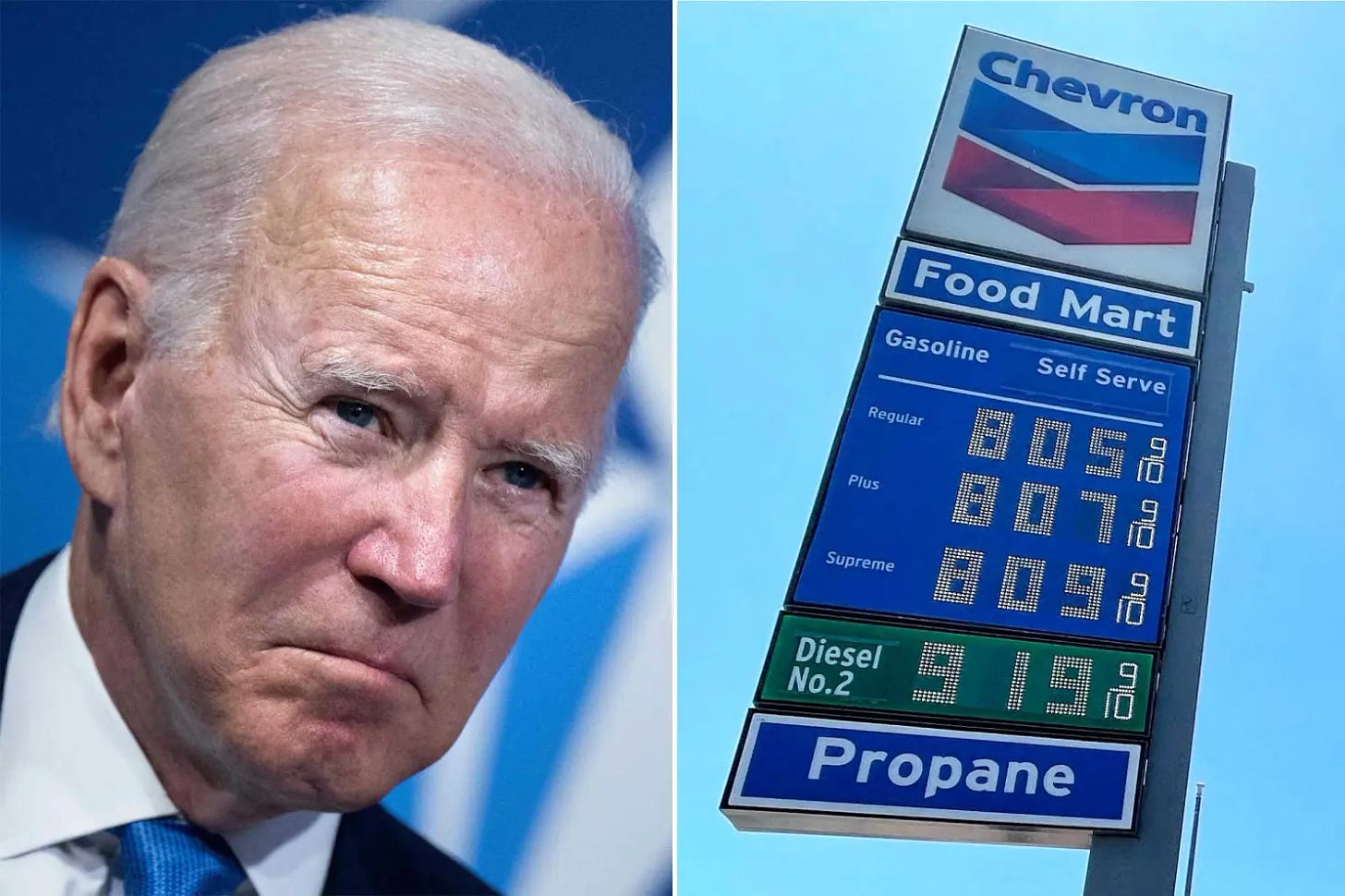This July 4th, as you fill up your car or truck, you might be tempted to blame President Joe Biden for high gasoline prices.
You shouldn’t, say some experts. It’s Russian President Vladimir Putin’s fault, they say. The US had to cut off Russian oil imports to punish Putin for invading Ukraine.
Meanwhile, Biden himself has blamed the American energy industry.
“At a time of war,” Biden wrote in an open letter to the industry on June 15, “high refinery profit margins being passed directly onto American families are not acceptable… companies must take immediate actions to increase the supply of gasoline, diesel, and other refined product.”
But US refineries are already operating at 94 percent of their capacity, with US refineries in the Gulf of Mexico running at 98 percent, which is the highest rate in 30 years. Running refineries at a higher capacity than that risks damaging the equipment. As such, Biden isn’t just wrong, he insulted some of the hardest working people operating in one of the most dangerous industries in America.


But, on May 12, Biden’s Interior Department blocked a proposal to open up more than one million acres of land in Alaska for oil and gas drilling. Two days later, Biden’s Environmental Protection Agency blocked plans to expand an oil refinery in the US Virgin Islands.
Biden and his defenders said he had to block the expansion of the Virgin Islands refinery, given how polluting it was.
But had Biden’s EPA allowed the Virgin Island refinery to expand, the owners would have poured nearly $3 billion into retrofitting the plant so it produced gasoline and other products more cleanly, while significantly increasing production at the same time.
Furthermore, anybody who cares about air pollution and climate change should want more oil and gas drilling, not less. US emissions declined 22% between 2005 and 2020, mostly because cheap natural gas has replaced coal.
In truth, there are many things Biden could have done, and still should do, to lower energy prices. He could invoke the National Defense Act to accelerate the rate of oil and gas permits. He could set a floor of $80/barrel for re-filling the Strategic Petroleum Reserve (SPR), which would be a powerful incentive for the industry, because it would prevent prices from falling to unprofitable levels. Biden could announce trade agreements with American allies to supply them with liquified natural gas, which would incentivize more natural gas production and lower prices.
If Biden got America on a wartime footing, as he should be given Russia’s aggression in Europe, we would see the lowering of oil, gas and petroleum prices in less than one year.
Why won’t Biden do it? Because he has declared war on fossil fuels. “I guarantee you, we’re going to end fossil fuel,” Biden promised a student climate activist in 2019. “I am not going to cooperate with them,” he said, referring to the oil and gas industry.
And indeed, he hasn’t. When oil and gas executives visited the White House in June, Biden snubbed them by refusing to attend the meeting. Instead, at the very same moment, he met with wind industry executives. A few days earlier, Biden administration officials signaled they may support a large new tax on the oil industry proposed by a Senator from Oregon.
All of this has soured the oil and gas industry on investing in production. “If you were an oil company,” a senior executive at a major US bank told me, why would you invest hundreds of millions of dollars into expanding refining capacity if you thought the federal government or investors would shut you down in the next few years? The narrative coming from the administration is absolutely insane.”
And it’s about to get more insane. At the G-7 meeting in Germany earlier this week, French President Emmanuel Macron was overheard telling Biden that he couldn’t count on Saudi Arabia and the United Arab Emirates to produce much more oil. Implicit in Macron’s remarks was that the US needs to produce far more than Biden has been willing to allow.





